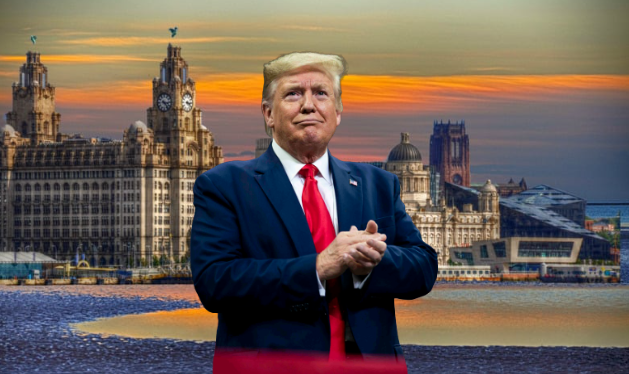

Regulatory Challenges in Trump’s Real Estate and America First Policies
Former President Donald Trump, known for his extensive real estate ventures, often faced conflicts between his business interests and his “America First” policy stance. His global real estate projects sometimes appeared at odds with his domestic-focused political agenda.
This duality raised questions about potential conflicts between personal business pursuits and national policy objectives. Critics argued that his international dealings could influence his policy decisions, leading to debates over the need for stricter regulations to prevent such conflicts.
The issue highlighted concerns about transparency and the separation of personal business interests from governmental responsibilities. Trump’s real estate portfolio includes properties in various countries, such as golf courses in Scotland and Ireland, and licensing deals in countries like Turkey and the Philippines.
These international investments have been scrutinized for potential conflicts of interest, especially when foreign policy decisions could impact the value or success of these ventures. For instance, his business ties in Turkey raised concerns due to the complex U.S.-Turkey relationship, highlighting the challenges in separating personal business interests from national policy decisions.
Foreign governments and business entities engaging with Trump’s properties have fueled concerns about undue influence and preferential treatment in U.S. policies. Such instances have led to discussions about the effectiveness of current regulations in addressing conflicts of interest involving government officials with significant business holdings.
During his presidency, Trump advocated for policies aimed at bringing jobs and manufacturing back to the United States, emphasizing economic nationalism. However, his businesses continued to operate globally, sometimes outsourcing jobs or engaging in practices that contradicted his policy messages.
This dichotomy led to criticism that his personal business practices did not align with his political rhetoric, prompting discussions about the effectiveness of existing regulations in addressing such discrepancies. Reports indicated that Trump-branded properties benefited from foreign investments and partnerships, raising further concerns about potential conflicts of interest.
These concerns have fueled debates on whether government officials should be required to divest from private business interests upon assuming office. Ethics experts and political opponents called for increased transparency and stricter regulations to address potential conflicts of interest.
They argued that existing laws were insufficient to handle the unique situation of a president with extensive global business ties. Proposed solutions included requiring presidents to divest from their businesses or place assets in blind trusts to prevent any undue influence on policy decisions.
These discussions underscored the need for regulatory reforms to ensure that personal business interests do not compromise national interests. The debate over transparency and accountability in government has intensified, with calls for new legislation to address conflicts of interest among elected officials.
Trump’s approach to his business holdings during his presidency, including his refusal to divest from his companies, set a controversial precedent. This situation highlighted gaps in current regulations regarding the separation of personal business interests and public office responsibilities.
The ongoing debate emphasizes the importance of establishing clear guidelines and regulations to prevent potential conflicts of interest for future officeholders, ensuring that personal business activities do not interfere with the execution of public duties. Critics have suggested implementing stronger financial disclosure requirements and stricter enforcement mechanisms to prevent future conflicts of interest.
The discussion continues as lawmakers consider whether additional oversight is necessary to prevent similar ethical concerns in future administrations. The intersection of Trump’s real estate interests and his “America First” policies presents a complex case study in the challenges of balancing personal business pursuits with public responsibilities.
It underscores the importance of robust regulatory frameworks to manage potential conflicts of interest and maintain public trust in governmental decision-making. The situation highlights the broader issue of financial interests influencing political decisions, raising questions about how best to separate private business dealings from public service.
As the discussion continues, it serves as a reminder of the need for clear policies that delineate the boundaries between private business activities and public service. Strengthening regulations in this area may be necessary to ensure that future leaders can effectively govern without personal financial interests interfering with national decision-making.




































